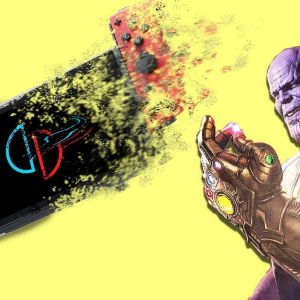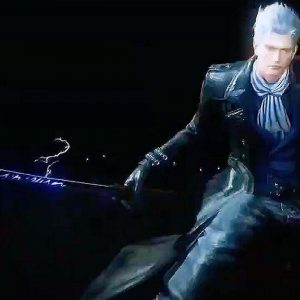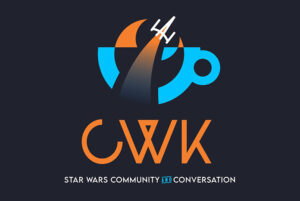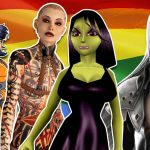[ad_1]
For International Women’s Day, Kiki Wolfkill considers what the day means for her.
Editors Note: This year, for International Women’s Day, we wanted to open our platform up to developers to share their experiences, their thoughts, and their messages to the community as we all reflect on the contributions women have made in the games industry. We’re incredibly grateful these (very busy) women took the time out of their day to share this message with you all.
Over the last few years, the gaming industry has had a deliberate focus on how to create a culture of inclusivity. Not only within the games we make, but also within our own halls and with the people and companies we partner with. This focus has allowed me to reflect on my 22 years in the game industry and I am able to see how much I have grown and how much our industry has grown. I also realize that the role I have today, which is responsible for driving inclusivity, allows me to take ownership over something I didn’t have when I started working in gaming.
I got my first job in game development late in the 1990s, a time when you rarely saw a woman involved in game development. At that time, I had been racing cars and teaching high-performance driving for a number of years, which was a similarly male-dominated environment. I had learned to put up with snide remarks about a woman’s ability to drive along, with other chauvinistic comments.
I soon learned that working in the gaming industry really was no different. At gaming conferences especially, I dodged a fair share of back-handed comments, the most common being that I “must work in marketing” – basically shorthand for no way could I actually be making a game, and doubled as a horribly devaluing comment against our marketing friends.
The thing is, through all of this, I never complained. I didn’t take it, but I never complained. As I look back, I believe I put up with these things to show that they didn’t affect me and that I could rise above them. I wore my thick skin with pride. My vindication was to be excellent at all the things that I did. I wanted my achievements to show that I was stronger than these base and petty behaviors. In some ways, this perseverance was good; I became less interesting to bully and I had no issue telling someone they were being an ass or to step away.
“
I wore my thick skin with pride. My vindication was to be excellent at all the things that I did.
The problem was, while this worked to keep some of the worst offenders at bay, it didn’t change the environment around me in a positive way. I created a clear space for myself, but in sweeping some of these behaviors under the rug, it didn’t help any of these people learn why what they were doing was wrong and harmful to me and any other women they may have been doing the same to. The thick skin that I thought showed my strength worked against creating the type of change I work toward today and feel very passionate about building.
We must model what we want to see. I want everyone around me to know that they don’t have to put up with poor behavior; they can rise above the noise because we are all responsible for creating a safe environment where we can learn to be better humans to each other. I know that this type of culture change is as scary as it is powerful and, over the last few years, I have recognized that the grit that has made me successful in the past needs to pave a sustainable path for others to be successful in the future. For me, the key to this is in creating not a clear space, but a safe space where we can all learn to be better and to act with respect and intention.
“
The thick skin that I thought showed my strength worked against creating the type of change I work toward today.
As we celebrate International Women’s Day, I consider what meaning this day has for me. I feel such warmth and pride for what we as a community, along with others, are striving for — a world and society where everyone is celebrated for who they are and what they contribute. What I understand is that inclusion is hard and that we must be able to hold up what makes us unique and celebrate it as much as we celebrate others. Differentiation is not just fine — it’s an asset and deserves to be recognized and heard. Appreciation is not finite — there is room to celebrate every type of person regardless of ethnicity, gender, or physical attribute, and celebrating one is not at the expense of another. I am so grateful to be in a position to be able to help define our work culture; it just took a few years for me to understand that I always had that power, I just hadn’t quite exercised it yet.
Kiki Wolfkill heads up 343 Industries’ transmedia and entertainment efforts. She serves as Executive Producer for the upcoming Halo television series in development with SHOWTIME and Amblin Entertainment and served as Executive Producer on the digital series Halo: The Fall of Reach, Halo: Nightfall. As a passionate storyteller both in and out of games, Kiki brings together her production background and her creative leadership to deliver on the next chapter in Halo’s expansive universe.
Kiki joined 343 Industries in 2009 as Executive Producer and was responsible for building the internalHalo 4 game team and shipping Halo 4. An industry veteran of over 20 years, Kiki’s career in games began in the visual arts, where she eventually became Director of Art of Microsoft Studios. Her past credits include the Project Gotham Racing and Forza Motorsport franchises, as well as classics like Fable, Crackdown, Gears of War, and Mass Effect. In 2013, Kiki was named one of the 10 Most Powerful Women in Gaming by Fortune Magazine and in 2017, one of Fast Company’s 100 Most Creative People in Business. You can read more about Kiki and Halo here: https://news.microsoft.com/stories/people/kiki-wolfkill.html
[ad_2]
Source link
























